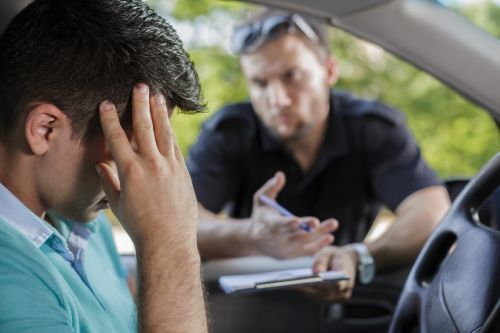Statistically, very few criminal cases go to trial. Most are resolved through plea bargaining. Nonetheless, anyone charged with a crime has the right to take their case to trial where the prosecutor must prove them guilty beyond a reasonable doubt.
Realistically, if you were charged with drunk driving (OWI or DUI), it may not make sense to take your trial. Trial is expensive, time-consuming, and comes with a fair amount of risk. In addition, you may have actually been intoxicated when you were pulled over and might know you are guilty even as you are fighting to be found not guilty.
So when should you take a DUI case to trial, and how do you know?
Should I Plead Guilty or Not Guilty to a DUI?
In most criminal cases, particularly when you are represented by an attorney, your initial plea to the charges will be not guilty. The court will schedule your case for a pre-trial hearing and set a trial date. While your attorney prepares for trial, he will evaluate the evidence and negotiate with the prosecutor for a plea bargain. Assuming the prosecutor makes a reasonable offer, you would then enter a plea of guilty or no contest and the judge will issue a sentence.
But sometimes, taking your case to trial is a better option. For example, in a first-time DUI where the prosecutor’s best offer is to plead to the charge, you have little to lose and are better off going to trial.
Other times, your attorney might evaluate the case and think that taking your case to trial is your best option. During pre-trial discovery, your attorney will have reviewed the evidence the prosecutor intends to present to try to prove you guilty. If your lawyer feels confident he can challenge key pieces of evidence and has a strong approach to having the case against you dismissed or having you acquitted, he may advise you to take your case to trial.
When Should I Accept a Plea Bargain?
There is a reason most cases are resolved through plea bargaining. It is usually the easiest, fastest, and least stressful way to resolve an OWI charge.
Most courts face a substantial backlog of cases. Taking a case to trial is time-consuming, and judges and prosecutors generally prefer to resolve cases through negotiation and settlement.
By agreeing to a favorable plea bargain, your attorney is offering to save the prosecutor the time needed to prepare and take your case to trial in exchange for your agreement to plead guilty to a reduced charge or a less severe sentence.
In most plea bargains, the prosecutor makes the first offer. Often, it is not a great one. As the defendant, you are in charge and can decide whether to accept or reject it.
After some negotiations, your attorney may have convinced the prosecutor to offer better terms and may recommend that you plead guilty or no contest to a less severe charge, knowing in advance that the sentence will be more manageable. While the judge is not required to accept the sentence the prosecutor recommends, they are unlikely to reject it because this is the easiest way to resolve the case.
Here are the most common reasons to accept a plea bargain and not take your OWI case to trial:
- You know you are guilty and the plea bargain is a relatively light sentence for the crime.
- There is no good way to challenge the evidence against you.
- You do not want to pay more in legal fees.
- You just want to put the matter behind you.
- There is a high probability that even if you take your case to trial the result will be the same as what you would have received through the plea bargain.
- There is a real possibility that if you are found guilty, your sentence will be harsher than what you would receive in a plea bargain.
When Should I Take My DUI Case to Trial?
Attorneys do not take going to trial lightly and will only advise it if they have a reasonably high level of certainty that they can beat the prosecutor’s case. Common reasons a defense attorney may recommend taking your OWI case to trial include:
- No probable cause for the traffic stop
- No probable cause to believe you were under the influence of drugs or alcohol
- Faulty or unreliable BAC test results
- Tainted or damaged blood sample
- Mechanical or maintenance problems with the testing machines
- Arrest based on unapproved or improperly administered Field Sobriety Tests
- Different levels of impairment at a given BAC level based on your individual physiology
- Alternate explanation for your alleged intoxication
- You did not know you ingested intoxicating substances
- Police misconduct or violation of your rights
Jury Trial vs. Bench Trial
If you wish to take your case to trial, you can choose a jury or a bench trial.
In a Michigan jury trial, you will have a jury of 6 people if you were charged with a misdemeanor, and a jury of 12 people if you were charged with a felony.
In a bench trial, there is no jury and only the judge hears and decides your case. The judge will evaluate the facts presented and determine how the law applies in your case.
If you are considering a bench trial, the judge assigned to your case will be an important factor to consider. You should discuss with your attorney the judge’s reputation and how they historically rule on drunk driving cases. Some judges are more lenient in DUI cases and will be more likely to cut you a break, while others would not be a good fit for a bench trial in an OWI case.
Contact a Michigan OWI Defense Attorney Today
Robert Elmen is a seasoned trial attorney based in Ann Arbor who represents people charged with DUI throughout Michigan. He can evaluate your situation, help you get your license back after an OWI, and advise whether to accept a plea bargain or take your case to trial.
To put his experience to work for you, call us at (734) 707-8915 or contact Elmen Legal today to schedule an appointment to discuss your situation and how defense attorney Robert Elmen can help.




